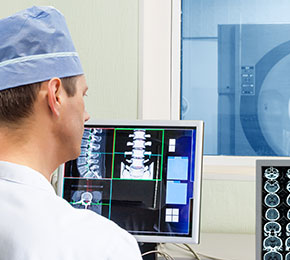A recent New York Times article by Gina Kolata, was written to address the anxiety-provoking issues that patients endure while waiting for the results of radiological scans. Have you ever had a CT or PET scan and had to wait days to receive the report? Waiting for the results of a scan is stressful under any circumstances but for cancer patients who frequently need scans to check on the progress of their cancer treatment and are worried whether or not their treatment regiment is working to eliminate the cancer from their bodies, it’s especially stressful. Waiting can be tortuous!
Continue reading
As Seen In the New York Times: Radiologists Are Reducing the Pain of Uncertainty
Endoscopic resection for esophageal cancer not always best choice
A less invasive treatment for localized, early-stage esophageal cancer known as the endoscopic resection has been growing in popularity over the last 5 years or so. While there was no hard evidence the resection was better than the more traditional surgical resection, doctors and patients were choosing it more often.
Continue reading
Gene That Stops Spread of Deadly Lung Cancer Discovered
There may be a new weapon in the arsenal against lung cancer. Researchers from the Salk Institute in La Jolla, California believe they have discovered a gene that stops the spread of lung cancer. Their findings were revealed in the journal Molecular Cell.
Continue reading
Testicular cancer increasing in young Hispanic men
Hispanic Americans are the fastest growing ethnic group in the United States. Now they have another distinction. Young Hispanic American men between the ages of 15 and 39 are reporting dramatic increases in testicular cancer, according to a new study.
Continue reading
Study links high cholesterol to increased risk of breast cancer
We know from past studies that obesity can cause a number of chronic medical conditions including diabetes and heart disease. Well a new study suggests women with high cholesterol , which is usually accompanied by obesity, may be at a higher risk of developing breast cancer.
Continue reading
CDC Reports Obamacare’s Prevention Emphasis Will Result in Wider Health Benefits
The Centers for Disease Control has released a report about the Patient Protection and Affordable Care Act, also known as Obamacare. While President Obama’s main goal was to bring the security of health insurance to millions of people, the CDC says Obamacare has the potential to improve population health over the long term.
Continue reading
Blood Test to Detect Risk of Breast Cancer Being Developed
While strides have been made in detecting breast cancer still 1 in 8 women will get the disease at least once in their lifetime. That’s according to United States Breast Cancer statistics.
It is the most common cancer in women and the most common cause of death from cancer among Hispanic women. Now researchers from University College London are developing a blood test to help predict the likelihood of a woman developing breast cancer.
Continue reading
Regular Aspirin Use May Lower Risk of Pancreatic Cancer
You’ve probably heard that some doctors recommend taking a daily aspirin to lower risks of heart attacks. Well now a new study says taking a low-dose aspirin could lower the risk for pancreatic cancer
Continue reading
Study Suggests Nicotine Patch Might Cause Cancer
The nicotine patch has been considered one of the most successful ways to help smokers kick the habit. A new study suggests it may actually cause more harm than good.
Researchers at Virginia Bioinformatics Institute found that nicotine is a carcinogenic substance that causes thousands of mutations of cells, which is a precursor to cancer.
Continue reading
Too Much Sitting Tied to Risk for Certain Cancers
When preparing for alarming news one might suggest you sit down to deal with the shock. But in this case you might want to stand.
A new study suggests if you sit a lot you may be at a higher risk for certain cancers. The findings were published June 16 in the Journal of the National Cancer Institute. Researchers collected data from 43 studies that looked at the link between sitting and nearly 70,000 cases of cancer.
Continue reading















